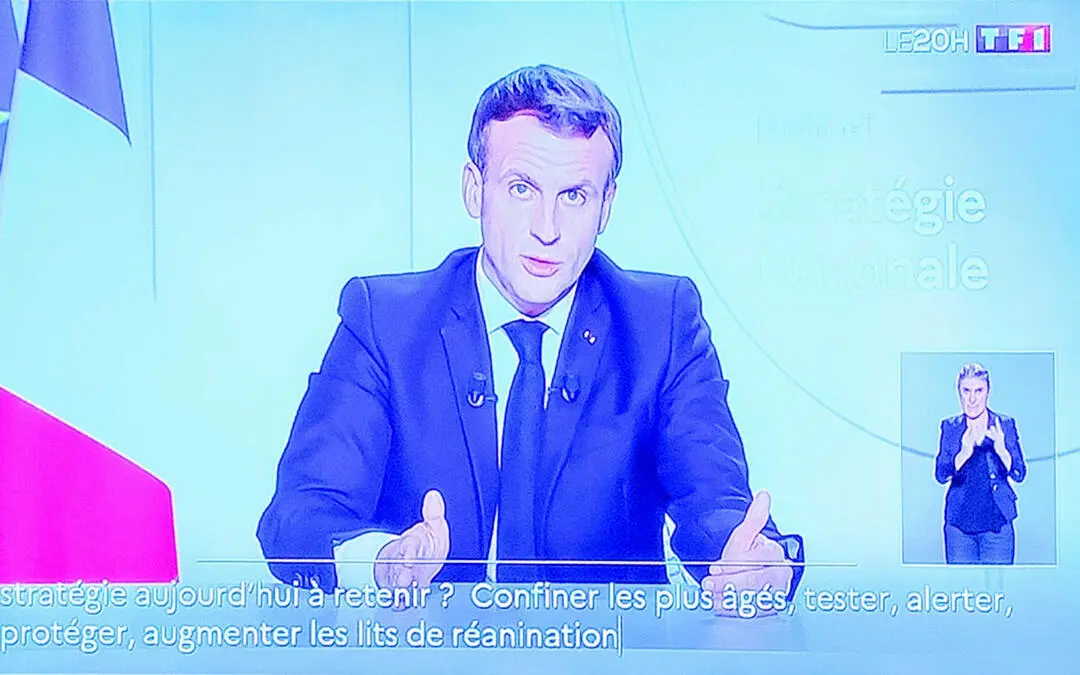This morning, before I’d even turned on my phone, the hair salon called to move my appointment up to today, our last day before five weeks of lockdown in France. There was much more traffic on the road as I took our son to his last day of baseball camp, as everyone is scrambling to get last things done and stock up on essentials before midnight. My colleague, Wim, posted in our company slack channel that no real estate agents are accepting appointments for visits now. Other activities and appointments have been cancelled for our family, and I’m not sure if we’ll be able to take our cats to the vet on Saturday. We’re in that low-scale disaster relief mode when something unexpected throws all your plans and routines up in the air.
Of course this wasn’t completely unexpected, and we have been through it before just a few months ago. It helps reduce anxiety to have some idea what we’re in for. But I can’t help but worry about this disease and the effects it has on its victims. There’s so much uncertainty around the symptoms, the severity of the illness, and the level of immunity post-infection. How do you manage a pandemic with so many variables and unknowns?
China, where the virus supposedly started, seems to show the example. In fairness, COVID-19 is not their first rodeo, and they have seen rapidly spreading infections before. And the Chinese government has few qualms about removing civil liberties and placing constraints on the population. But these methods have kept the death toll under 5000 (for a country of 1.4 billion!), and they’ve seen very few new cases since early March. By contrast, countries reluctant to enforce widespread quarantines and with populations protesting measures to contain the infection’s spread are seeing hundreds of thousands of deaths.
France and its neighbors seem to be in the middle. European governments aren’t as experienced as East Asian ones in dealing with pandemics, but they also seem to prioritize the protection of their citizens over their approval and the economy. When President Macron spoke to the nation last night, he clearly laid out the challenges to containing the virus, the possible actions to take, and their pros and cons. The main challenges are: 1) the number of ICU beds and trained medical staff is limited, but 2) the economy needs to keep going in order to fund the health system and all the relief programs. The curfew recently put in place did nothing to stop the spread (although it may have lessened the load on hospitals through fewer accidents), so more drastic steps must be taken. He discussed the options of quarantining only the older population but argued that it wasn’t really feasible or ethical. On the idea of letting the virus run its course to establish herd immunity, he was categorical – it is against our values as a nation to sacrifice such a large number of the population (estimated at over 400,000 by scientists). The option of a full lockdown (confinement) like in the spring is too costly financially, psychologically and developmentally for the millions of school children. So they have decided on an adjusted lockdown, starting at midnight on Friday the 30th of October.
All non-essential businesses will be closed, and everyone who can work remotely will. Factories, agriculture and construction sites will continue operating with safety measures in place. Most importantly, in my opinion, daycare and schools will continue in-person while post-Bac students will have classes online. Working from home was not common in France before 2020, so it was already very destabilizing for French workers. Adding the pressure of home-schooling or taking care of small children at the same time took a huge toll on the collective mental health of the nation. Fortunately, this round: we have sufficient supplies of PPE, accessible and speedy tests, a phone app to track infected contacts, and public services are supposed to stay open (the Préfecture closings created major havoc before). We will still need permission slips to leave the house, even to walk the dog within a 1 km perimeter (or risk a €135 fine!), and all private or public gatherings are forbidden. Macron also said that everyone entering France would be tested to keep people from bringing in new cases. We are concerned about all our British clients trying to establish residency before the Withdrawal Agreement deadline of 31-December, as this will be even harder now.
There are still many questions about the practical details of this lockdown, but the Prime Minister, Jean Castex, will address them tonight (29-October) at 6:30 pm. The plan is also to reevaluate the situation every 15 days and adjust accordingly, all in the hopes of being able to celebrate year-end holidays. Wherever you are, please stay home as much as possible and be safe when you must come into contact with people outside your household. No collective measures can stop this pandemic unless we as individuals all do our part to protect ourselves and each other.
The Renestance team is staying safe and still working from home, so feel free to contact us during normal office hours. If you have concerns about travel to France or are feeling anxious about being isolated here, please reach out to us directly. Also THINK South of France is a community group of over 1000+ English speakers and a helpful place to ask questions about information at a local level. Best wishes to you all.
Dennelle is the President of Renestance and a bilingual American who’s lived in France since 2000. She loves so many things about France, its language, culture, geography, quality of life... that she started a business to help others realize their dreams of living in this incredible place.
All articles by: Dennelle Taylor Nizoux


